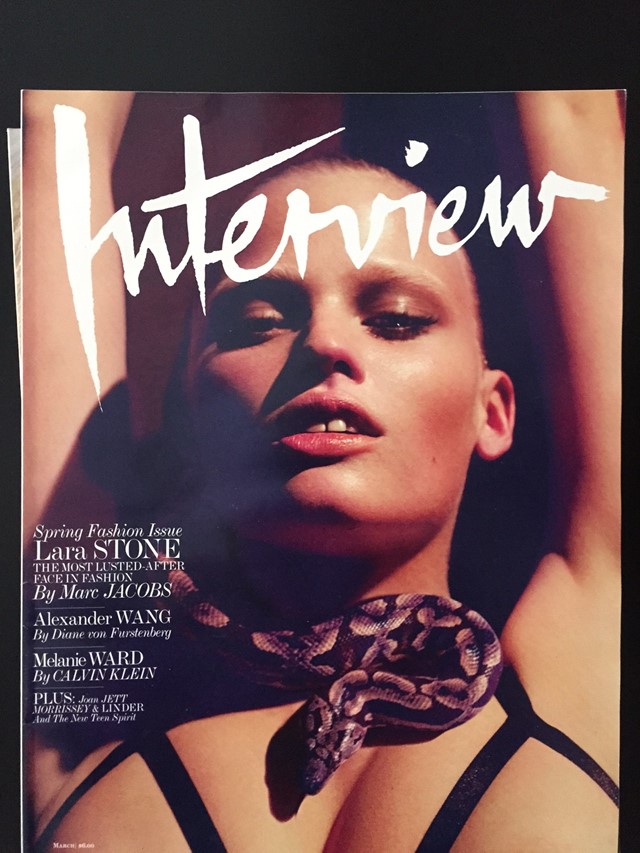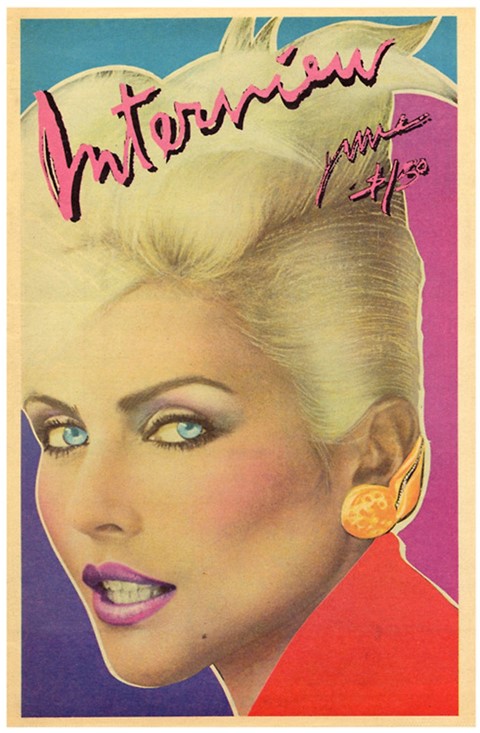As his new book hits the shelves, Christopher Bollen answers Jefferson Hack's version of the Proust Questionnaire
Christopher Bollen is a Manhattan-based writer and Editor at Large of Interview, the legendary pop magazine founded by Andy Warhol in 1969. Originally from Cincinnati, Ohio, Bollen moved to New York to study English and American Literature at the prestigious Columbia University, from which he graduated Summa Cum Laude in 1998. Prior to Interview, Bollen has held the editor seat at V Magazine and VMAN; he's also contributed to some of the most respected publications, including the New York Times, Artforum and AnOther Man. Following the success of his debut novel in 2011, the 39-year-old fiction author presents his new book, Orient. To mark the long-awaited release, here Bollen answers Jefferson Hack's personal version of the famous Proust Questionnaire, discussing life achievements, the greatness of spontaneity and childhood memories, alongside an array of his favourite Interview covers, past and present.
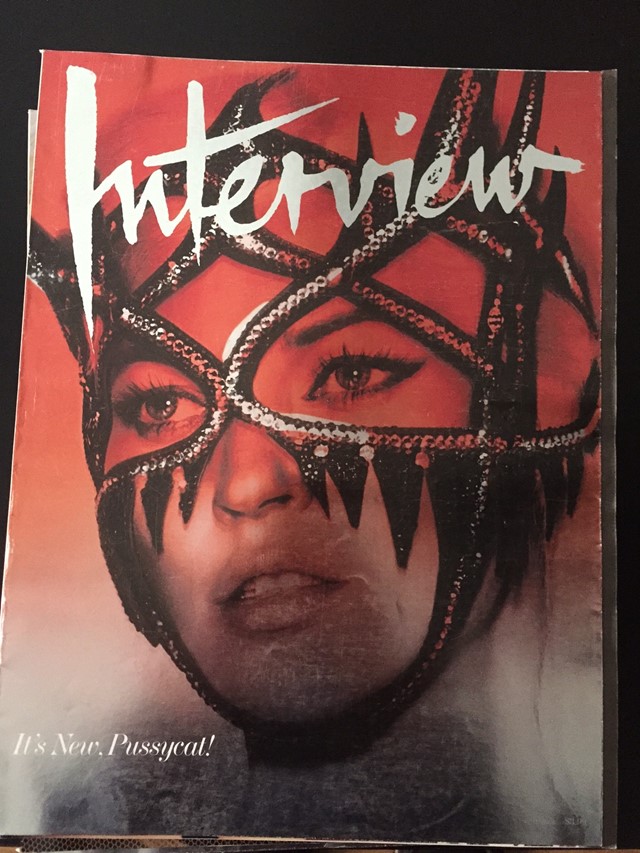
What are you thinking of right now?
Greece. I’m trying to figure out my next novel set on an island in Greece, and as I tend to do in the early stages of writing, my mind races and u-turns and nearly topples over cliff edges in the attempt to assemble a workable story. It’s really a full-time obsession—and sadly, even though it’s set in Greece, not much of a mental vacation.
What makes you laugh?
I laugh too much. I’ve actually been told this as if it were some sort of character flaw. But so much makes me laugh: strange looks from people passing by, awkward incidents related by friends in the course of their day, dogs pooping on the sidewalk, Graham Greene novels, Fran Lebowitz, texts from my friend Tom.
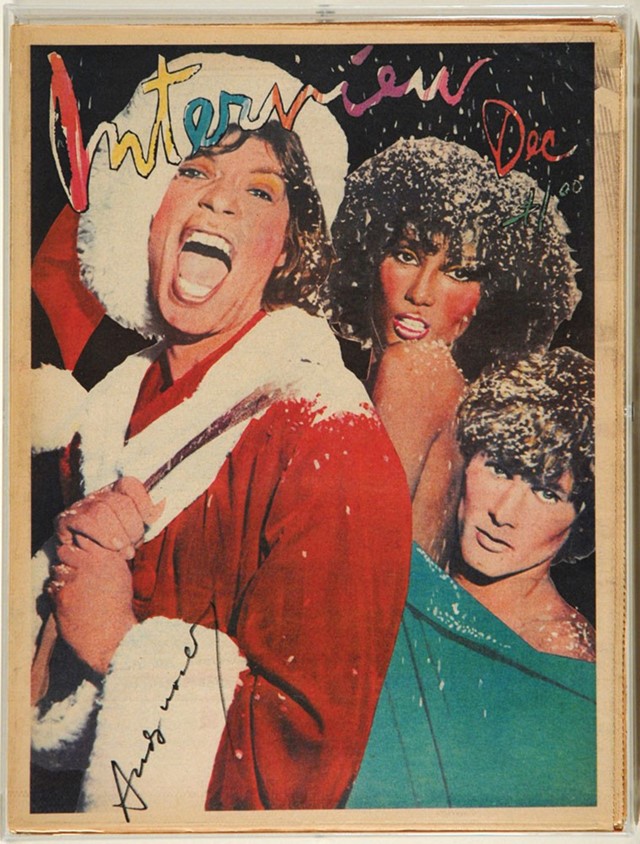
What makes you cry?
I don’t do this activity as often. On average, I cry maybe once every six months. A few weeks ago I cried while reading a memoir and I couldn’t remember the last time a book brought me to tears. In the past few years, I tend to cry if I think about my father, who died in November 2012.
What do you consider to be the greatest invention?
I’m going to say the coffee maker. I still can’t figure out how it boils and filters hot coffee so quickly. It’s the veritable printing press around my apartment in the mornings.
Do you have a mentor or inspirational figure that has guided or influenced you?
It’s always saddened me that I had no particular mentor in my early years – perhaps an older New York writer who would take me under their wing and steered me down certain paths. I’ve always blamed that on AIDS and all of the creative spirits who died so young in the generations before mine. We really lost more than we can ever measure by that disease.
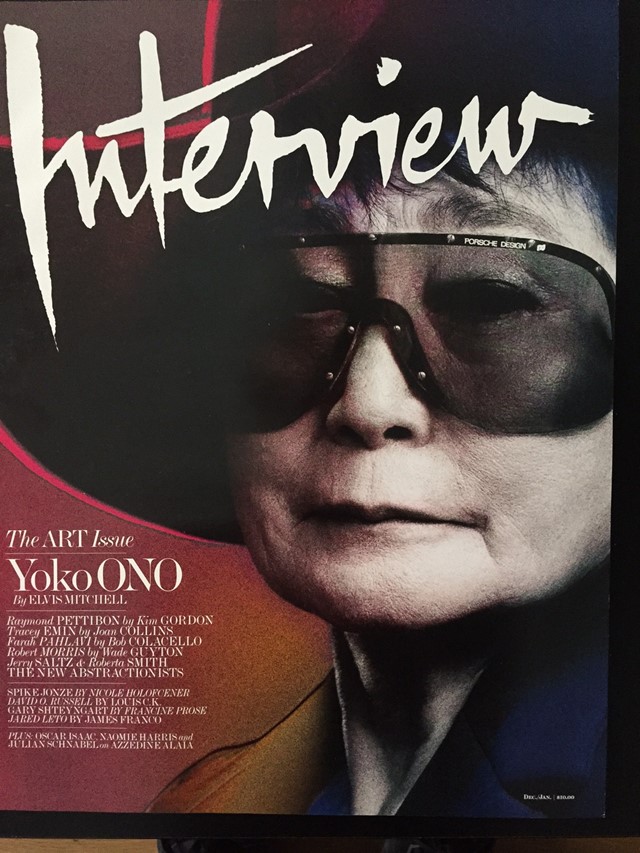
Where do you feel most at home?
New York City. It’s really the only place that will have me. I’ve lived here for 19 years now (in about 15 different apartments). Your home is not supposed to surprise you, but New York does every single day.
Where are you right now?
Seat 17A, economy window, on an American Airlines Boeing twinjet two thirds of the way over the Atlantic Ocean from London to New York. Altitude: 34,000 feet. Dinner: Beef or pasta?
What is your proudest achievement in work?
Switching gears. As much as I’ve loved working as an editor in magazines—and I continue to do so, usually joyfully—I really always wanted to write fiction, and I’m glad I stopped, leaned against a wall, took a breath, and at age thirty, said, “what happened to that novel you were always promising yourself you’d write?” So I wrote it. And then I wrote another one. I’m proud of being able to move in different directions. It’s never too late.
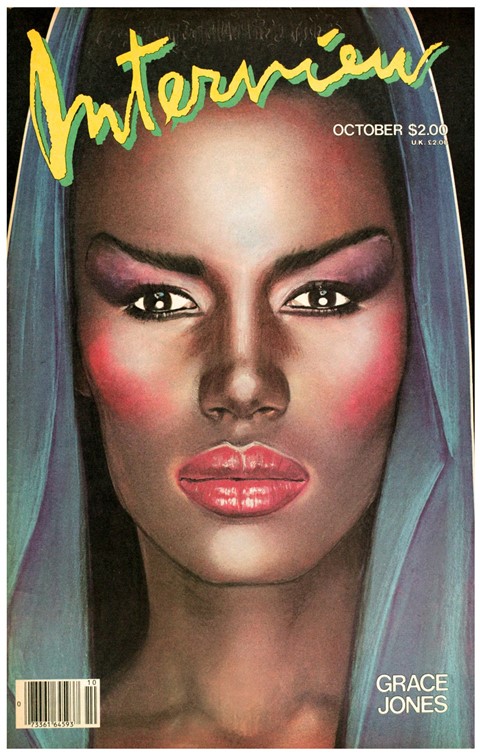
What is your proudest achievement in life?
To be filled in later in pen when I either A) have a child or B) find homes for every abandoned dog. In the meantime, I’m going to write this answer in pencil: staying relatively sane, trying to be an empathetic person who cares about and listens to others, not always needing to be in the center, and also that I still read one novel a week.
What do you most dislike about contemporary culture?
The acceleration of constant distraction and the loss of distance: both hinder the imagination.
What do you most like about the age we live in?
Online chess. I would never have learned this highly addictive, brilliant game without it. Now please someone delete it from my phone. I can’t stop playing it. Actually, the real answer is also found in the answer to the last question: the loss of distance due to the Internet has also created supportive communities for those who have no outlet in their own towns and neighborhoods. And that’s a wonderful thing: finding others like you.
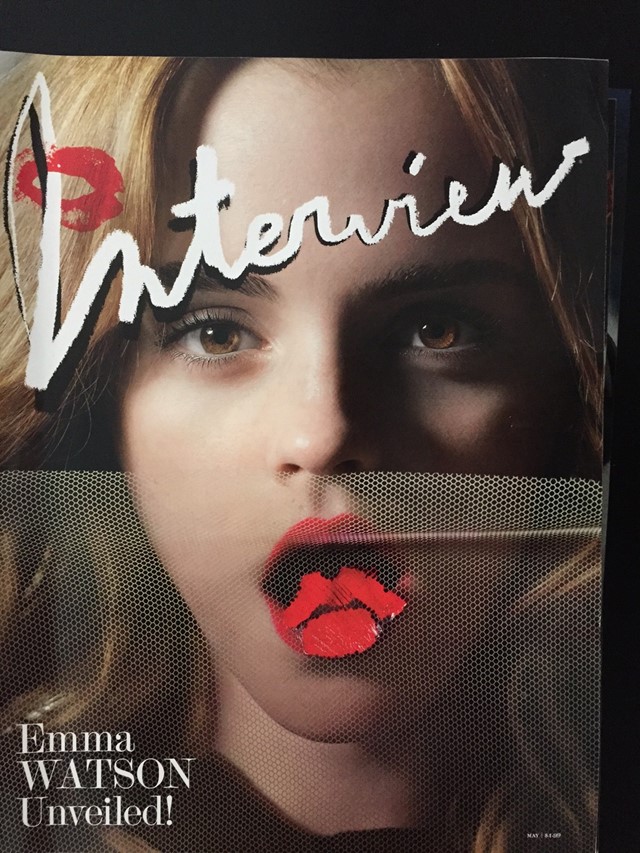
At what points do life and work intersect?
I used to spend sleepless nights wondering if my entire life was eclipsed by work, even down to my friendships. I don’t worry about that anymore. If you’re very lucky, work and life move fluidly together and they build constantly off each other. It’s part of my job to grab the scraps of the world that interest me and mine it.
What’s the best advice you’ve been given?
“Hurry up.” Because you have to do as much as you can with what you’re given and time is the most democratic institution there is. We all, hopefully, get roughly the same amount and you better utilize it. Hurry. Don’t wait.
What is the biggest risk you’ve ever taken?
After college I moved to Venice, Italy. I didn’t want to leave the warm pocket of New York I had found, but I went alone and I stayed for several months and that single decision at the age of 23 transformed me. It made me fall in love with the world.
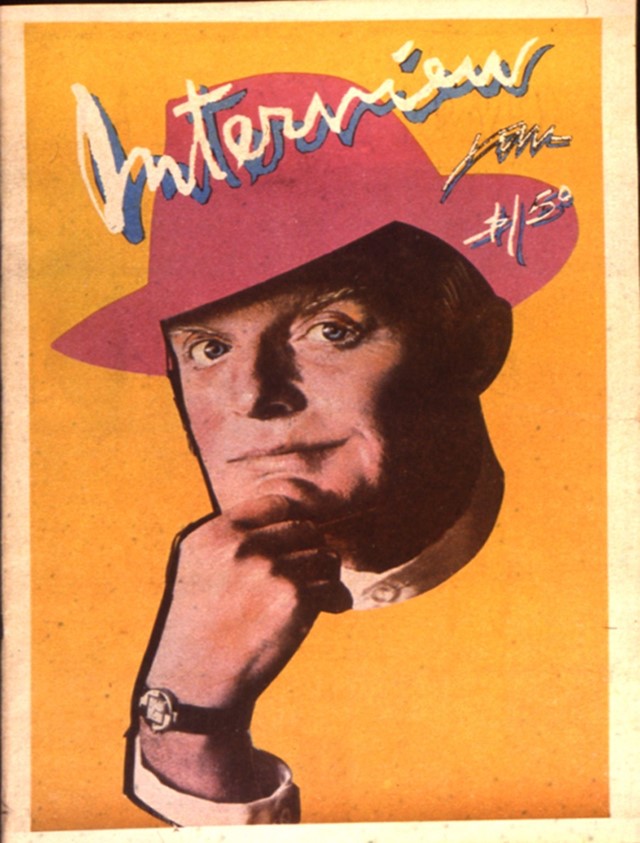
Recommend a book or poem that has changed your perspective on life?
It’s an obvious one, but I still find myself quoting lines from T.S. Elliot’s “The Wasteland.” It holds inside of it so many raw truths. “These fragments I have shored against my ruins….. Shantih, shantih, shantih”’—peace passeth understanding.
What is your earliest childhood memory?
No one believes me, and I’m not sure if I believe me anymore, or if this memory is merely some very early induction based on the story someone told me, but I swear I remember lying under a bright light on a surgical table at about six months old while doctors are crowded around me: I had pyloric stenosis and I was having an operation to remove the blockage in my intestines. I remember my father coming into the unit. And that’s it. Just that memory, the light, the doctors, my father, then darkness. But I do have the scar across my stomach.
What’s the most important relationship in your life?
This seems like a dodge, because I have so many people in my life that I love so much it almost frightens me, but, as I’m just releasing a novel into the world, I’m going to say the reader, the one I don’t know, who takes a chance and follows my story. It’s really a miraculous relationship between writer and reader, and I think it’s generous in both ways: I always find it very generous that someone has taken five or eight or ten hours out of their busy lives to read something I wrote.
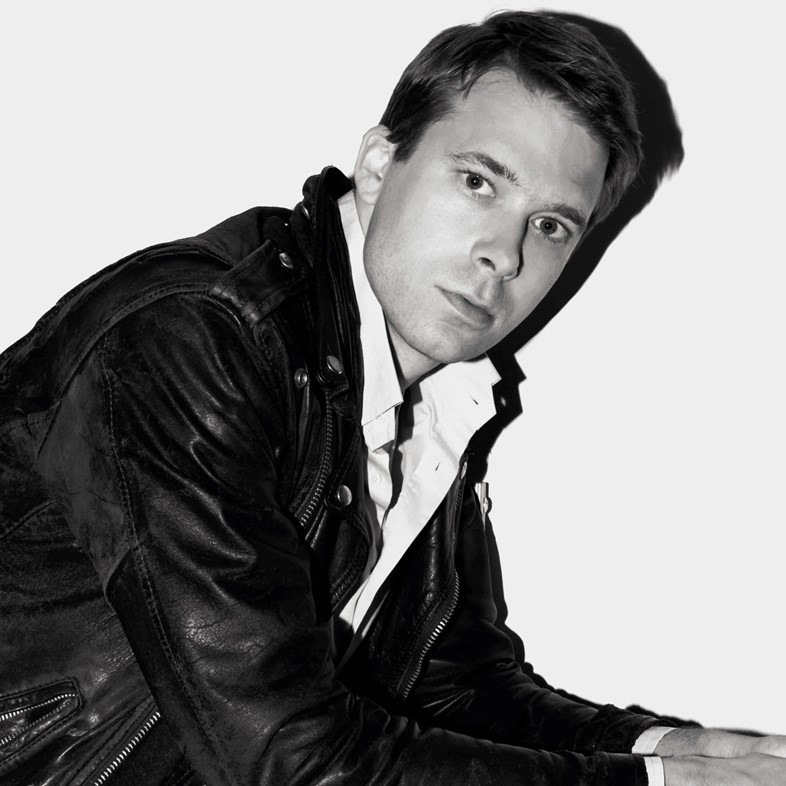
What’s the most romantic action you’ve taken?
I did buy someone I love plant-cultivation classes at the New York Botanical Gardens. Why give flowers when you can give the gift of growing them? A very edifying romantic action, I think, although I didn’t have to wake up early every Saturday morning and take the subway to the Bronx for the lessons.
What’s the most spiritual action you’ve taken?
A writer friend once said to me that she struggles every day not to find God. And I agree. I was raised Catholic and I feel like I spent my teens and early twenties stripping religion from my life. Now that I’m older, I do see the beauty and community and the drowning of the ego in it too. Occasionally, I will creep into a church and sit in the back pews or line up on Ash Wednesday and get ashes on my forehead. But really the most spiritual action for me lies in travel. I’m a humanist and there is something approaching God in seeing how others on the opposite side of the planet live and work and take care of their families.
If you could wish for one change in the world what would it be?
Better, less expensive health care for everyone. And while I’m at it, I’m willing to reconsider the invention of a microchip placed in the brain that instantly allows you to speak foreign languages. I used to be opposed to that idea, but I’ve yet again just stopped Italian classes. I am never going to learn this damn language on my own.
Orient by Christopher Bollen is out now, published by Simon & Schuster.
